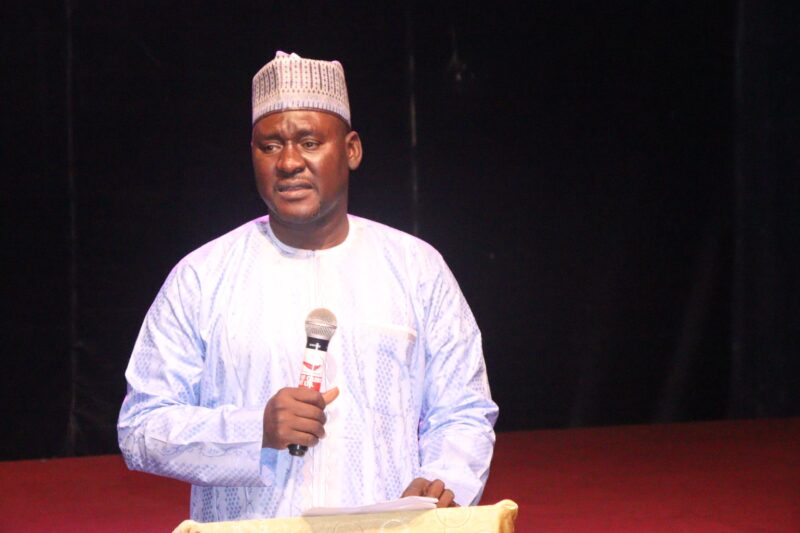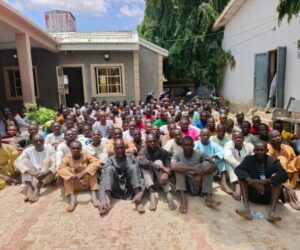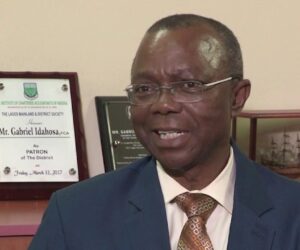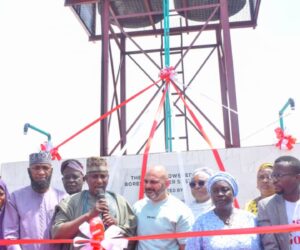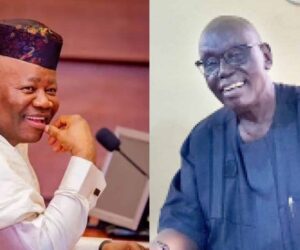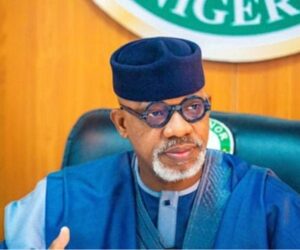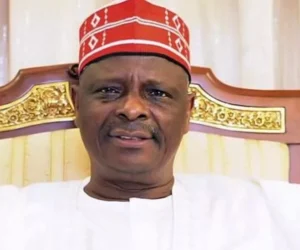Oxfam in Nigeria and the Civil Society Legislative Advocacy Centre (CISLAC) have held strategic talks with the Economic Community of West African States (ECOWAS) Commission, seeking to broaden collaboration on some of the region’s most pressing challenges, ranging from widening inequality and climate justice to security and integration.
The meeting, hosted by ECOWAS Commission President Omar Touray, brought together senior representatives from the two civil society organisations.
The delegation was led by Oxfam Nigeria Country Director, John Makina, and CISLAC Executive Director, Auwal Rafsanjani, who outlined civil society’s readiness to support the Commission in shaping policies that strengthen governance and foster inclusive development across West Africa.
Mr Makina described inequality in West Africa as a crisis requiring urgent and coordinated intervention, observing that the region grapples with deeper levels of disparity than other African blocs.
He commended ECOWAS for its long-standing efforts in promoting human dignity, rural development, and inclusive growth, while stressing that Oxfam and its partners are committed to contributing to initiatives that directly confront the structural causes of inequality.
He further disclosed that Oxfam, working with CISLAC and other civil society partners in the region, has developed a five-year strategic framework (2024–2029) that will serve as a roadmap for engaging ECOWAS.
According to him, the plan seeks to position civil society as a critical ally of the Commission in addressing inequality, climate change, and governance challenges, while also helping to advance regional integration and social protection systems.
In his remarks, Mr Rafsanjani emphasised that reducing inequality in Nigeria and West Africa is not merely a policy preference but a necessity for sustaining growth and ensuring long-term stability.
He explained that CISLAC’s vision is anchored on advancing human rights, fighting poverty, and building a “human economy,” one that prioritises people and communities over profit.
Mr Rafsanjani also announced the forthcoming release of CISLAC’s 8th Annual SDG 16 Shadow Report during the United Nations General Assembly.
The report, an independent assessment of Nigeria’s progress on peace, justice, and strong institutions, is designed as an accountability tool for government, development partners, and citizens.
According to him, the report’s findings will offer insights into governance reforms while amplifying the voices of citizens who demand transparency and stronger democratic institutions.
He further reaffirmed CISLAC’s support for the ECOWAS Vision 2050, highlighting its focus on peace, security, political stability, and credible elections. These elements, he said, remain crucial for strengthening trust in governance, preventing conflict, and consolidating democracy across the sub-region.
Responding to the delegation, Mr Touray welcomed the engagement, describing it as a timely and strategic conversation with organisations that play a central role in shaping public awareness and accountability.
He stressed that civil society remains indispensable in building regional integration, advancing peace, and facilitating trade among West African nations.
Mr. Touray reiterated the unity of the region, declaring that “our people are one, and no one can divide us.”
He urged civil society to intensify its efforts in educating citizens about their rights and civic responsibilities, which he described as essential for sustaining peace and stability.
READ ALSO: ANALYSIS: Can new ECOWAS leadership revive/sustain bloc?
Addressing broader challenges, the ECOWAS President drew attention to the rising threat of disinformation and deep fakes, which he said are amplified by gaps in education and the ease with which misinformation spreads across digital platforms.
He called for coordinated interventions by governments, media, and civil society to curb the spread of false narratives that undermine governance and social cohesion.
On climate change, Mr Touray underlined the urgent need for collective action to tackle crises such as farmer–herder conflicts and other climate-driven instabilities.
He emphasised that climate justice must remain at the centre of advocacy and policy-making, given its direct impact on livelihoods, food security, and peace in the region.
He assured the visiting organisations that ECOWAS is open to sustained partnership with Oxfam, CISLAC, and other civil society actors, adding that the Commission is committed to advancing initiatives that promote peace, sustainable development, and stronger regional integration.
The engagement, both sides agreed, sets the stage for a more structured partnership between ECOWAS and civil society in West Africa, one that places people, justice, and sustainability at the heart of regional governance.

